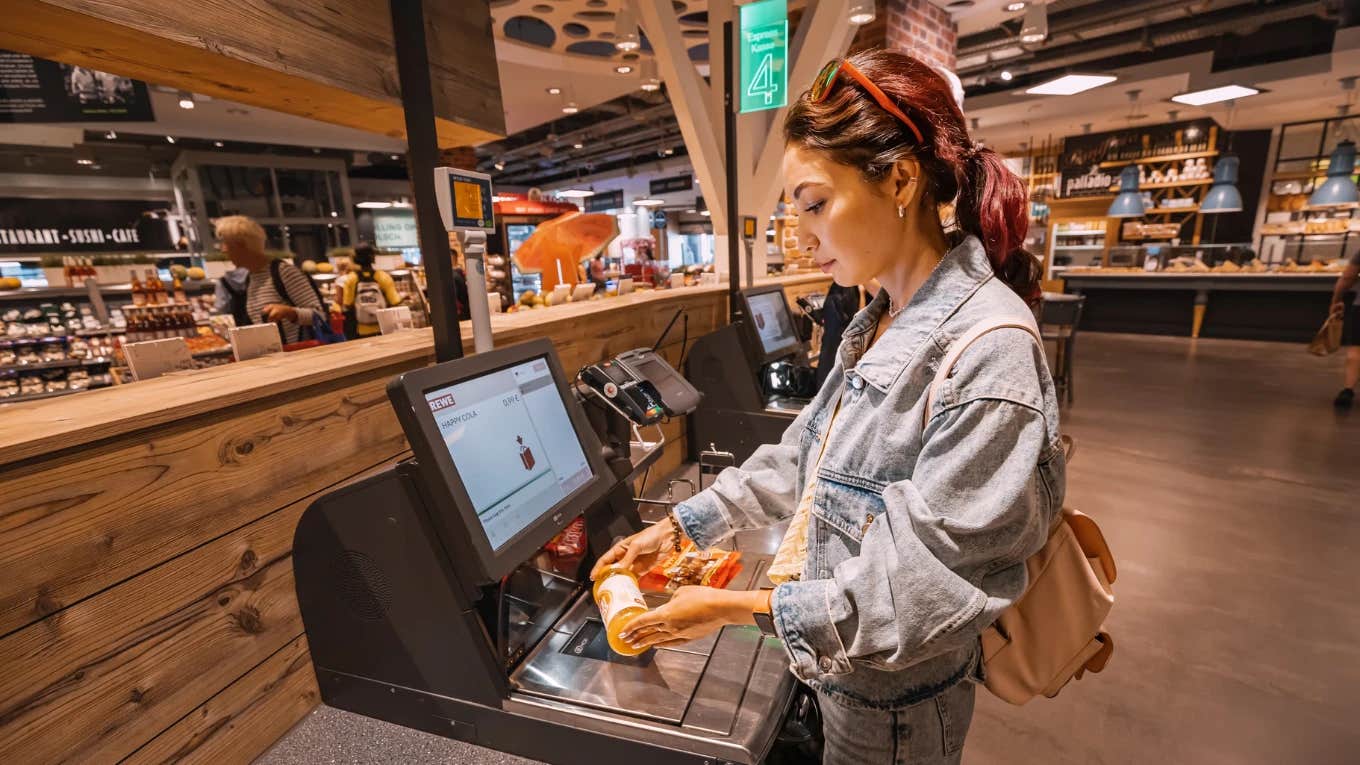Studies Show Tons Of Shoppers Are Stealing From Self-Checkout, But People Are Finding It Hard To Care
A huge proportion of self-checkout theft is accidental, but stores keep installing them anyway — and keeping prices artificially high.
 frantic00 / Shutterstock.com
frantic00 / Shutterstock.com Most of us have at least thought of doing it — slipping something past the self-checkout without paying for it. But it turns out a lot more of us are doing it than we realize — and for reasons you'd never guess, especially given the ways retailers are approaching the problem.
Studies show tons of shoppers are stealing from self-checkout, but people are finding it hard to care.
According to retailers, theft has become a major problem in stores, eating into profits by wide margins. And a huge proportion of the blame rests squarely on self-checkouts: a recent study found that people are a staggering 21 times more likely to get a stolen item past a machine than a human cashier, which isn't exactly surprising.
Despite the huge problem of theft, retailers haven't yet turned away from self-checkouts. And, especially in the context of our difficult economy, many people are having trouble feeling like this is really a problem at all.
A high proportion of self-checkout thefts are honest mistakes and accidents.
Another study found that a surprising one in seven people admit to having purposefully stolen something at self-checkout. This includes everything from simply not scanning a product at all, to scanning the wrong barcodes. There are also more sophisticated scams like "the banana trick," in which shoppers weigh something like a steak under the price code for a much cheaper banana — which for legal purposes is a fake internet joke you didn't hear about from me!
But while a lot of people are jacking stuff on purpose, another survey found that an even higher proportion of self-checkout thefts aren't thefts at all — at least not in spirit.
Twenty percent of shoppers said they've stolen at self-checkout on accident, by mis-scanning things or forgetting an item on the bottom of their shopping cart, for example.
But rather than get rid of self-checkouts — which customers don't even like — retailers are implementing draconian anti-theft measures instead.
Sure, it feels, and often is, faster than going to a cashier, and for the socially anxious among us it saves us from an awkward interpersonal interaction. But the benefits of self-checkout stop there for both customers and retailers.
The machines break down frequently due to "unexpected items in the bagging area" and other errors that require a staff member's intervention. A 2022 study found these issues are so common that more than two-thirds of shoppers have experienced them. But it hasn't slowed retailers down from installing them one bit.
Instead, many stores have resorted to locking merchandise up and patrolling customers' receipts as they leave, which shoppers have said they find offensive and makes them feel like criminals while shopping.
Stores have also taken to prosecuting even sincere mistakes when it comes to shoplifting. Several shoppers have won million-dollar lawsuits recently after being wrongfully accused of shoplifting at Walmart stores, for example. Some lawyers are even urging shoppers to avoid self-checkouts at all costs because of this.
Combined with rampant price-gouging and inflation, people simply don't care that so many shoppers are stealing from self-checkout.
A recent analysis has shed a stark light on what most of us have suspected all along — a lot of our inflation problems in recent years aren't inflation at all. Rather the problems are a result of corporations price-gouging consumers simply because they could amid the tumult of the pandemic and its aftermath — so-called "greedflation."
An analysis of 1300 companies by the Institute for Public Policy Research (IPPR), found that, for a slew of large corporations in all kinds of sectors, from energy to consumer goods like groceries, 2022 profits outpaced increases in costs by orders of magnitude.
So, yeah, it got more expensive to make goods — but companies have jacked their prices up exorbitantly in response, which is why corporate profits are at an all-time high.
This dishonesty, which in a functioning country would be illegal, is ultimately the far more likely reason for skyrocketing theft at self-checkouts. As TikToker @robbiesmoonmusic put it, "When you make people's basic needs unaffordable, some 'theft' may occur. It's called surviving."
The bottom line is this: If retailers really wanted to solve their theft problems, they'd be willing to at least hire an adequate number of cashiers to serve their customer base, like it used to be. Better yet, they could stop artificially inflating prices altogether.
It's easy to suspect that, instead, they are playing the long game — believing that eventually, machines and AI will be able to replace workers altogether, so the profit losses of self-checkout and theft are worth it to get a jump on that trend.
No wonder the IPPR is calling for a global corporate tax to try to curb this situation. Because stealing from self-checkout isn't actually the problem. As always, as the old saying goes, "It's the economy, stupid."
John Sundholm is a news and entertainment writer who covers pop culture, social justice and human interest topics.
